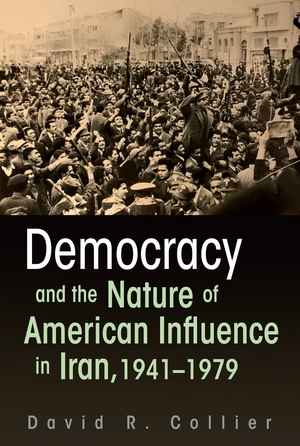"An incredibly timely work."—Democratization Journal
"This excellent book is theoretically innovative and full of insight into the nooks and crannies of the US-Iran relationship."—Matthew Shannon, H-Net Reviews
"Collier's deeply researched book is a must-read for analysts hoping to understand the origins, history, and trajectory of the Islamic Republic. The events analyzed in this book are still shaping international politics today and Collier's adept analysis informs our understanding of the current international situation. This important work is both timely and essential reading."—Tom Donlion, former National Security Advisor and distinguished fellow at the Council on Foreign Relations
"Collier demonstrates that traditional diplomatic history, deeply informed by scholarly and multiarchival sources, has important lessons to teach us about the perils of making America first at the expense of friends and allies."—Journal of American History
"Viewing US–Iran relations through the lens of linkage and leverage can provide important insights, helping us to understand better the nature and development of bilateral relations. This can be important, not only for understanding what happened in the past, but also in the formulation of future policies to make them more effective."—International Journal of Middle East Studies
"A nuanced and meticulously researched study that provides refreshingly new insights into the ups and downs of the last Shah’s relations with successive US administrations. Essential reading for all those who wish to go beyond common clichés about the fraught relationship between the United States and Iran."—Houchang Chehabi, professor of international relations and history, Boston University
"The book’s strength is in its chronological account, full of detail and rich in research."—Stephen McGlinchey, senior lecturer in international relations, University of the West of England
"Collier sheds light on the debate over the extent of Shah’s dependence (Shah the puppet or otherwise) but does not resolve it. This is an important and thorough contribution to the literature."—Choice
Description
Collier presents a timely and fresh reexamination of one of the most important bilateral relationships of the last century. He delves deeply into the American desire to promote democracy in Iran from the 1940s through the early 1960s and examines the myriad factors that contributed to their success in exerting a powerful influence on Iranian politics. By creating a framework to understand the efficacy of external pressure, Collier explains how the United States later relinquished this control during the 1960s and 1970s. During this time, the shah emerged as a dominant and effective political operator who took advantage of waning American influence to assert his authority. Collier reveals how this shifting power dynamic transformed the former client-patron relationship into one approaching equality.
About the Author
David R. Collier teaches courses on democracy in the Middle East and Asia at Boston University in Washington, DC. He is a research consultant for the Asia Group.
May 2017

